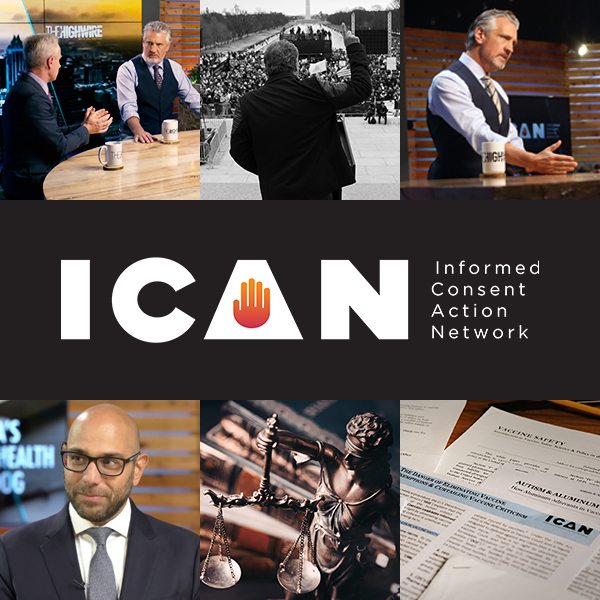
On April 13, 2021, the CDC and FDA announced a “pause” in the use of Janssen’s COVID-19 vaccine after reports to the Vaccine Adverse Events Reporting System (VAERS) of a serious adverse event, Cerebral Venous Sinus Thrombosis (CVST), in at least 6 vaccine recipients.
This Friday, April 23, 2021, the CDC’s Advisory Committee on Immunization Practices (ACIP) will vote on whether to withdraw or alter its recommendation for the J&J/Janssen COVID-19 vaccine. ICAN, through its attorneys, has sent a letter to each of the 16 voting members of ACIP highlighting three serious concerns with this vaccine.
Underreporting of CVST Cases to VAERS
Aletter sent to each of the 16 voting members of ACIP raises the serious concern that there may be additional cases of CVST that have not been reported to VAERS. The letter explained that underreporting of anaphylaxis, another serious event that occurs immediately after vaccination, was instructive as to why cases of CVST would be underreported.
According to the CDC, “Anaphylaxis after COVID-19 vaccination is rare and occurred in approximately 2 to 5 people per million vaccinated in the United States based on events reported to VAERS.” In contrast, a recent study at Mass General Brigham assessed anaphylaxis after COVID-19 vaccines in a clinical setting and found “severe reactions consistent with anaphylaxis occurred at a rate of 2.47 per 10,000 vaccinations.” This is equivalent to 50 times to 120 times more cases of anaphylaxis than what VAERS and the CDC are reporting.
ICAN explained to the ACIP members that the underreporting of anaphylaxis by the CDC and VAERS is particularly troubling because it is mandatory for medical providers to report anaphylaxis and vaccine administrators are supposed to observe recipients for 15 to 30-minutes after vaccination and anaphylaxis typically occurs within 30 minutes of vaccination. Nonetheless, it appears that only around 0.8 to 2 percent of all cases of anaphylaxis are reported.
This raises serious concerns regarding under-reporting of CVST, other clotting issues, and thrombocytopenia following receipt of the Janssen COVID-19 vaccine.
Other Serious Harms Caused by This Vaccine
It was almost impossible for the CDC and FDA to ignore the cases of CVST and thrombocytopenia because they virtually never happen. Hence, it was clear the vaccine was the culprit. ICAN pointed out that, in contrast, cardiac, immune-mediated, and neurological events, among others, that may occur from the J&J vaccine are easily missed or dismissed because they get buried with existing cases from other causes.
To justify this concern, ICAN shared with the ACIP members that since distribution of the J&J vaccine began on March 1, VAERS has received a total of 6,615 reports of adverse events for this vaccine as compared to 440 reports for Moderna’s and 323 reports for Pfizer’s! This should alarm any person paying attention and especially people whose votes will directly affect these numbers going forward.
In case ACIP was somehow unaware, ICAN also explained that vaccine hesitancy has been increasing in this country. The number of individuals who distrust the guidance from our public health authorities, including ACIP, is growing. ICAN made clear to ACIP that a vote that does anything other than withdraw the recommendation for this vaccine will no doubt increase vaccine hesitancy and exacerbate the mistrust that already exists.
To that end, ICAN pointed out the obvious conflict and potential bias created as a result of the fact that one of the voting members of ACIP is the principal investigator paid by J&J to conduct the clinical trial for its COVID-19 vaccine at St. Louis University.
Each of the above concerns, individually and together, warrants ACIP members’ immediate and careful consideration and attention. ACIP’s meeting is scheduled for Friday, April 23rd and can be attended by the public. We are hopeful that ACIP will take heed and make a decision that puts public health ahead of any other interests.
